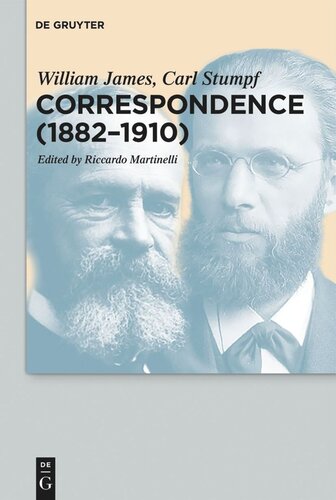

Most ebook files are in PDF format, so you can easily read them using various software such as Foxit Reader or directly on the Google Chrome browser.
Some ebook files are released by publishers in other formats such as .awz, .mobi, .epub, .fb2, etc. You may need to install specific software to read these formats on mobile/PC, such as Calibre.
Please read the tutorial at this link: https://ebookbell.com/faq
We offer FREE conversion to the popular formats you request; however, this may take some time. Therefore, right after payment, please email us, and we will try to provide the service as quickly as possible.
For some exceptional file formats or broken links (if any), please refrain from opening any disputes. Instead, email us first, and we will try to assist within a maximum of 6 hours.
EbookBell Team

4.8
24 reviewsJames and Stumpf first met in Prague in 1882. James soon started corresponding with a “colleague with whose persons and whose ideas alike I feel so warm a sympathy.” With this, a lifelong epistolary friendship began. For 28 years until James’s death in 1910, Stumpf became James’s most important European correspondent.
Besides psychological themes of great importance, such as the perception of space and of sound, the letters include commentary upon Stumpf’s (Tonpsychologie) and James’s main books (The Principles of Psychology, The Varieties of Religious Experience), and many other works. The two friends also exchange views concerning other scholars, religious faith and metaphysical topics. The different perspectives of the American and the German (European) way of living, philosophizing and doing science are frequently under discussion. The letters also touch upon personal questions of historical interest.
The book offers a critical edition and the English translation of hitherto unpublished primary sources. Historians of psychology and historians of philosophy will welcome the volume as a useful tool for their understanding of some crucial developments of the time. Scholars in the history of pragmatism and of phenomenology will also be interested in the volume.